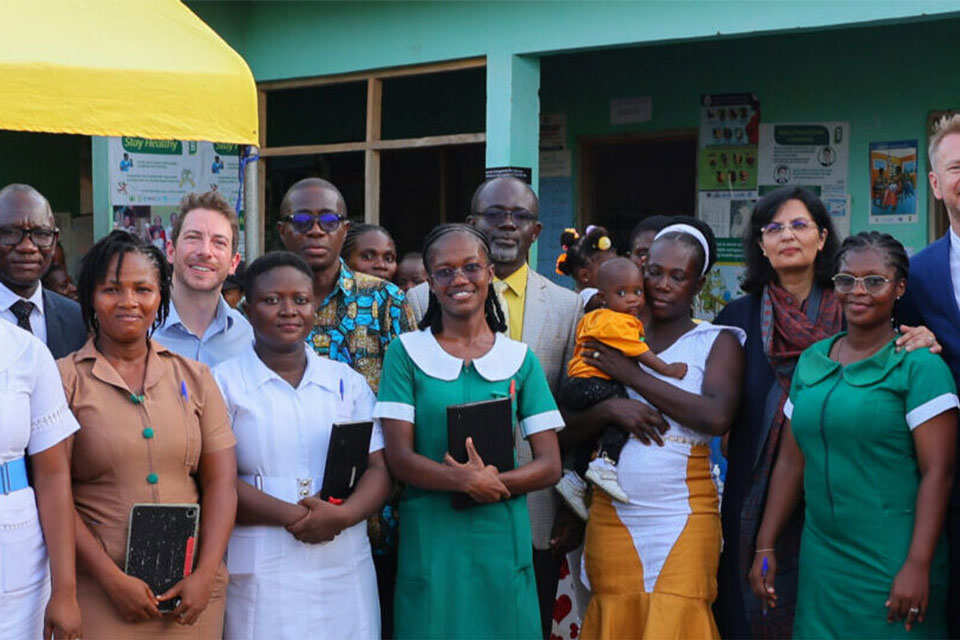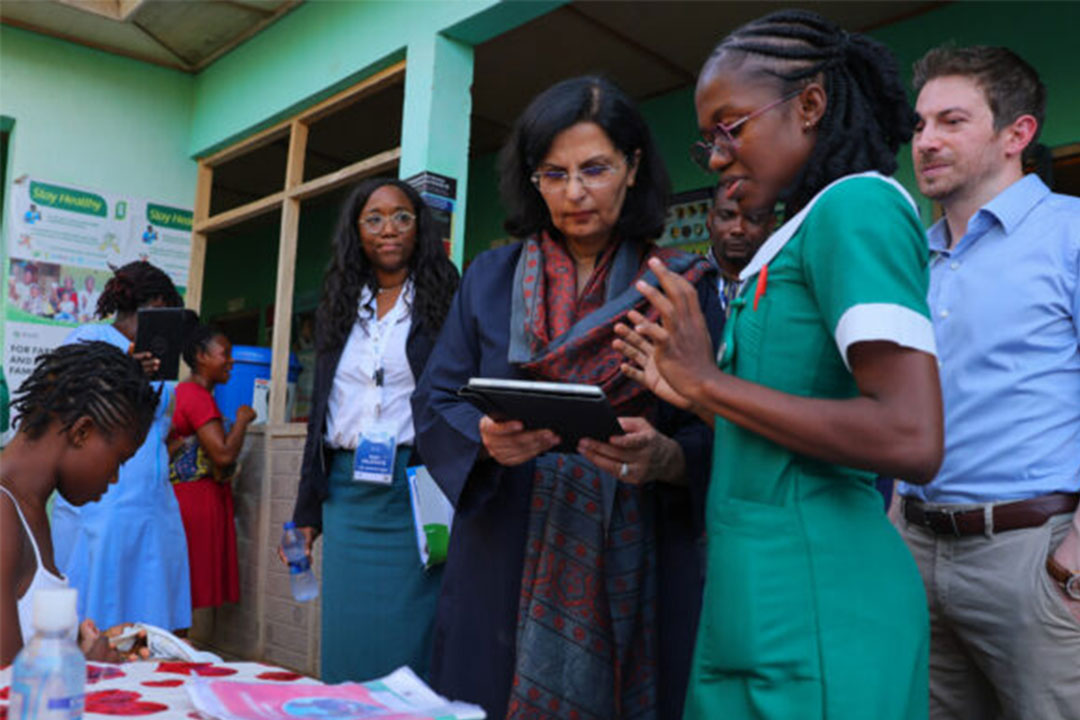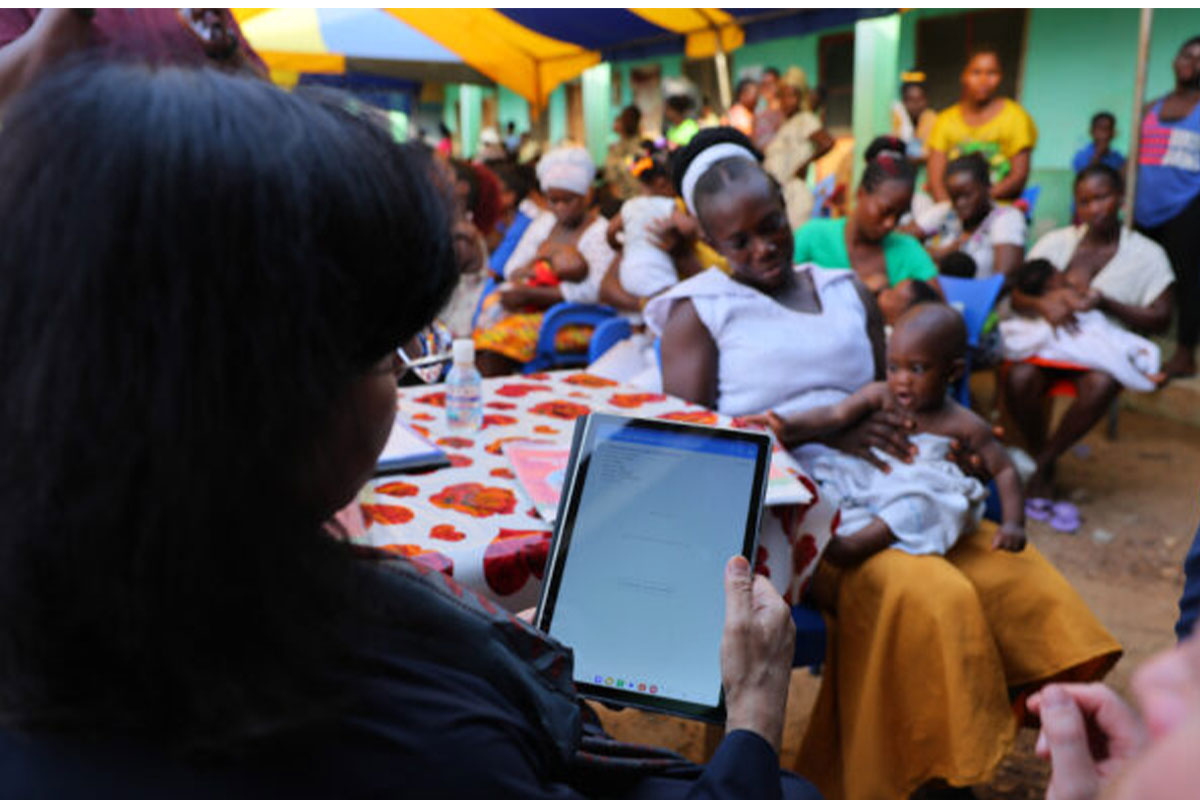Gavi CEO, Dr. Sania Nishtar visits Ghana to support biometric innovation in healthcare
Last week, Dr. Sania Nishtar, CEO of Gavi, the Vaccine Alliance, visited Ghana to observe the country’s pioneering efforts in integrating biometric technology into healthcare delivery.
- 20 May 2025
- 3 min read
- by Simprints

Last week, Dr. Sania Nishtar, CEO of Gavi, the Vaccine Alliance, visited Ghana to observe the country’s pioneering efforts in integrating biometric technology into healthcare delivery. Her visit underscored Gavi’s commitment to supporting innovative AI solutions that enhance vaccine delivery and health services in low- and middle-income countries.
The challenge
150 million – around 1 in 5 – children remain unregistered (UNICEF) and therefore invisible to governments and health systems. Sub-Saharan Africa alone accounts for more than half of the world’s unregistered children (90 million).
Lack of reliable ID makes it incredibly challenging to trace the delivery of essential healthcare, such as life-saving vaccines, to children and respond in real-time to dropouts or coverage gaps.

Simprints’ privacy-first biometric ID
Simprints has developed the world’s first open-source biometric digital ID technology with privacy at its core. Simprints uses AI-driven technology and provides technical support to overcome ID challenges and help ensure vital services reach patients at the last mile.
For example, in Bangladesh, the implementation of Simprints technology led to a 39% increase in maternal health coverage, with 19% more newborns receiving care from trained providers. More than 23,000 measles and rubella vaccines have been biometrically verified since the implementation of Simprints in the Dhaka and Moulvibazar districts.
Better data, better decisions
Ghana’s health sector has been at the forefront of adopting new tools like biometrics to improve patient identification and streamline healthcare services. In collaboration with Simprints, the Ghana Health Service (GHS) is using privacy-first biometric ID inside their digital health registries to track the delivery of routine immunisations and boost coverage rates.
- Over 65,000 unique medical records have been created, eliminating duplicates and ensuring a reliable dataset for immunisation tracking.
- This accurate data empowers Community Health Workers (CHWs) to effectively monitor vaccine delivery, allowing for the swift identification and intervention for individuals who may drop out of routine immunisation programs.
- CHWs also report a substantial reduction in their workload thanks to the use of biometrics, saving them valuable time and effort. This efficiency translates to faster interventions and increased capacity to care for more mothers and children.

Have you read?
Strengthening health systems
Gavi’s support for AI innovations like biometrics helps ensure critical investments in vaccines reach patients in the most remote and underserved communities. Dr. Nishtar’s visit reinforces the importance of partnerships and technological advancements in achieving global health goals.
Looking ahead
As Ghana continues to lead in implementing digital health solutions, the insights gained from this project will inform future strategies for scaling innovations across the country’s healthcare system.
Learn more
- Watch the film about our work with GHS in Ghana
- Learn more about our partnership with Gavi, the vaccine alliance
- Delve into our evidence base





